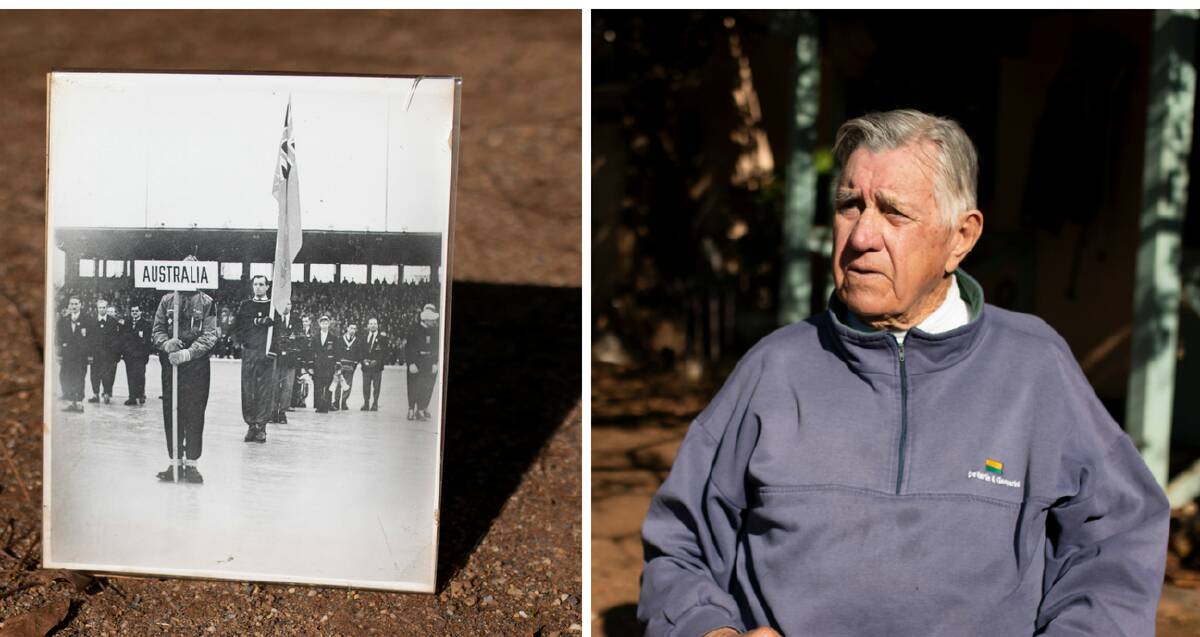
Life in Old Junee makes for good retirement for the kind of man who has witnessed several defining moments in the nation’s history.
Subscribe now for unlimited access.
or signup to continue reading
Gordon Day was born in Cootamundra in 1929, but grew up at The Chalet hotel in Charlottes Pass.
When the Second World War broke out, he was attending boarding school in Canberra. He recalls it was “like living in a war zone”, with American pilots performing reconnaissance drills over the school by night.
“Some of the older boys had left to join the navy, army or airforce, some became fighter or bomber pilots and we’d get reports back about how they were doing.
“Quite a few did get shot down. Some navy boys were sunk too.”
In case of an air raid, the students were instructed to dig themselves a ‘funk hole’.
Every afternoon, we’d get a jam sandwich and we’d snatch up any that were left over and store them in our shelter. They’d last about 10 days but they were there in case of an air raid.
The 20-year-old Mr Day, found himself back at Charlottes Pass when Sir William Hudson came through in 1948. He found employment chaperoning the surveyors.
“They followed my tracks to where Guthega meets the Snowy, and they asked me to build a camp along what would become the southern wall of the dam.
“So I virtually turned the sod on the first dam.”
His life on the slopes lead Mr Day and his brother to the 1952 Winter Olympics.
A broken leg kept Mr Day from competing, but he carried the flag when Australia’s first international ski team entered the opening ceremony.
His brother went on to qualify for another four Olympics, but Mr Day never did compete again.
He considers that day equally as a great disappointment and an enormous pride.
“It was truly devastating, I was devastated for a long time. But these things happen and you have to move on.”

